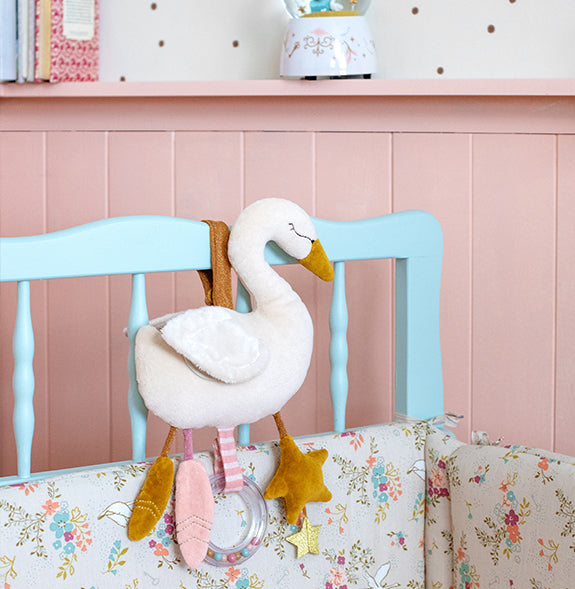Unlocking the Benefits of Children's Puzzles

Why are puzzles important for children?
Puzzles are not just a fun pastime for kids; they also offer numerous benefits for their development. When children engage in puzzle-solving activities, they are not only entertained but also challenged to think critically and problem-solve. Puzzles provide a range of cognitive, physical, and emotional benefits that contribute to a child's overall growth and well-being.
Enhancing cognitive skills
Completing puzzles helps children develop essential cognitive skills. As they manipulate puzzle pieces and figure out where they fit, kids improve their spatial awareness, hand-eye coordination, and fine motor skills. Puzzles also promote logical thinking, reasoning, and problem-solving abilities. These skills are crucial for academic success and everyday life.
Promoting concentration and patience
Puzzles require focus and concentration, which can be challenging for young children. By engaging in puzzle-solving activities, kids learn to concentrate on a task for an extended period. They develop patience as they persistently work towards completing the puzzle, even when faced with difficulties. These skills transfer to other areas of their lives, such as schoolwork and hobbies.
Boosting memory and cognitive flexibility
Puzzles stimulate memory retention and improve cognitive flexibility. As children remember shapes, colors, and patterns, their memory skills are strengthened. Additionally, puzzles expose kids to different problem-solving strategies, encouraging them to think flexibly and adapt their approach when faced with new challenges. This enhances their ability to think creatively and find multiple solutions to a problem.
Developing social and emotional skills
Puzzles can be enjoyed individually or in a group setting, making them a great tool for developing social and emotional skills. When children work on puzzles together, they learn to communicate, collaborate, and share ideas. They also experience the joy of achieving a common goal and the satisfaction of contributing to a team effort. Puzzles can also be a calming and relaxing activity, helping children manage stress and build resilience.
Encouraging independent learning
Puzzles empower children to take control of their learning. They can choose the level of difficulty that suits their abilities and gradually challenge themselves with more complex puzzles. This fosters a sense of independence and self-confidence as they successfully complete each puzzle. Independent learning through puzzles also promotes a sense of accomplishment and motivates children to tackle new challenges.
Types of children's puzzles
1. Jigsaw Puzzles
Jigsaw puzzles are a classic type of children's puzzle. They consist of small interlocking pieces that form a complete picture when correctly assembled. Jigsaw puzzles come in various difficulty levels, ranging from simple puzzles with large pieces for toddlers to complex ones with hundreds or even thousands of pieces for older children.
2. Shape Sorters
Shape sorters are puzzles that require children to match objects with corresponding holes or slots. These puzzles help develop shape recognition, hand-eye coordination, and problem-solving skills. Shape sorters often come in bright colors and different shapes, making them visually appealing and engaging for young children.
3. Brain Teasers
Brain teasers are puzzles that challenge children's thinking and problem-solving abilities. They often involve riddles, logic puzzles, or mathematical problems. Brain teasers encourage critical thinking, creativity, and the ability to think outside the box. They are an excellent way to keep children mentally stimulated and entertained.
4. Maze Puzzles
Maze puzzles are a fun and interactive type of puzzle where children navigate through a complex network of paths to reach a specific goal. These puzzles enhance problem-solving skills, spatial awareness, and logical thinking. Mazes can be found in various formats, such as books, magnetic games, or even online games.
5. Word and Number Puzzles
Word and number puzzles, such as crosswords, word searches, and Sudoku, are excellent for developing language and mathematical skills. These puzzles improve vocabulary, spelling, and numerical reasoning. They also promote concentration and attention to detail.
Conclusion
Puzzles offer a multitude of benefits for children, ranging from cognitive development to social and emotional growth. By engaging in puzzle-solving activities, kids enhance their cognitive skills, concentration, memory, and cognitive flexibility. They also develop important social and emotional skills while enjoying the process of independent learning. Encouraging children to engage in puzzles is a valuable investment in their overall development and well-being.

